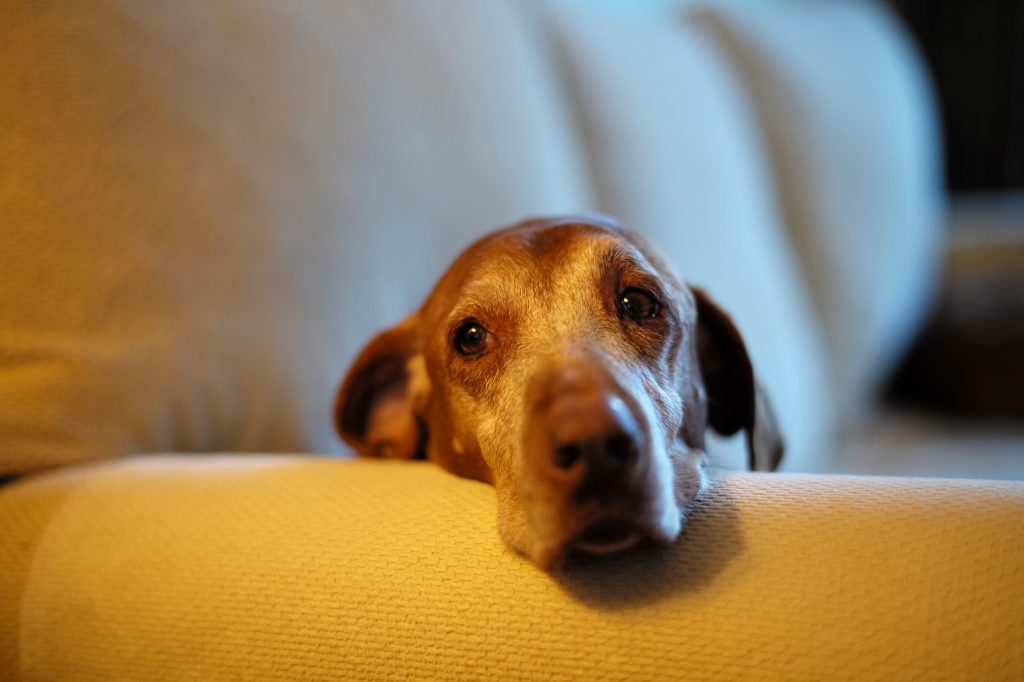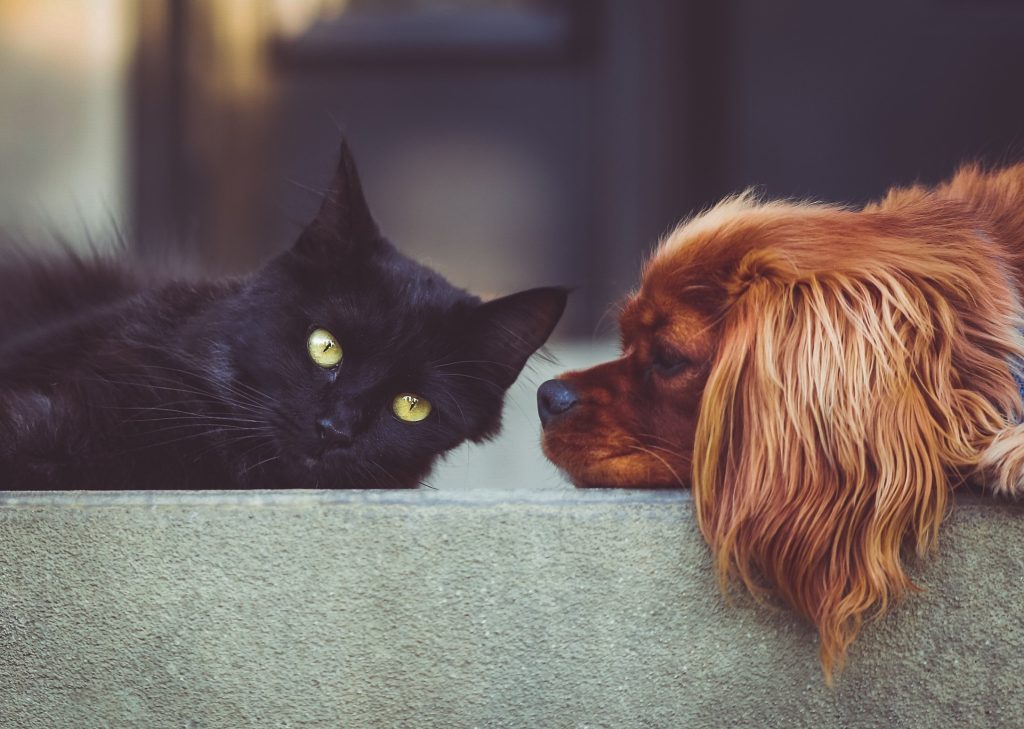August is Senior Pets Month, and we join in celebrating seniors animals. Whether your brought them home as a baby, or adopted them from the shelter a few years later, it becomes important for all of us to learn how best to care for elderly pets. It is an honor to help your pet transition into their golden years, and with just a little thoughtfulness and care, you can make your pet’s life easier, safer, and more comfortable for the both of you.
In honor of our loved ones in their golden years, we have compiled some tips for caring for senior pets.
Safety
Take a few moments to observe areas around your yard and home to limit opportunities for entrapment or injury. Just like in humans, as our loved ones age, health, vision, balance, and reflexes can be affected. Check for places your pet could slip and fall, or even get stuck.
- If you have slippery floors, consider floor coverings or nonslip carpet runners to provide additional stability
- Restrict access to stairs with baby gates or closed doors.
- Limit opportunities for your pet to climb too high by blocking access to high shelves, etc.
- Prevent jumping by providing stairs or ramps to elevated surfaces, such as your bed, their favorite napping spot, or even your car.
- Cover any open areas outside, like pools, fire pits, holes, etc.

Health
Your veterinarian will always be the best source of wisdom when it comes to keeping your pet healthy. The same things that applied when they were young are still true now: access to clean drinking water, a healthy diet, regular exercise, and good hygiene are all still very important. As your pet ages, some adjustments might need to be made to address their changing needs.
- Diet adjustments are often necessary. Find a food that is catered to senior pets as their nutritional needs might have changed. Consult your veterinarian for recommendations.
- More frequent grooming may become necessary. As pets age, their mobility and flexibility can decrease. Your pet may need additional help grooming, as they cannot always groom themselves effectively. As their activity levels also decrease, your pet may need more frequent nail trims, etc. This also allows you to notice any changes in their body.
- Exercise is still very important, but age may affect the types of activities you do together. Obesity is detrimental in senior pets, and adjusting their diet if their activity level decreases can be necessary. However, the old adage that ‘you can’t teach an old dog new tricks’ isn’t true! Try a new basic command, or hide a treat and let them find it. Massaging and stretching can be incorporated to increase circulation and maintain flexibility. Take a gentle walk, or play gently with a toy together. Moderation is key, and stop any activities if your pet shows discomfort or fatigue.
- Pay attention: if you notice any changes in your pet’s behavior, diet, or condition, please consult your veterinarian. Regular veterinary care becomes even more important for senior pets, and keeps them healthy and happy longer!
Comfort
Caring for an older pet isn’t always easy, but what an honor to love and to be loved by a senior. Showing affection and attention is incredibly important to senior pets, and helps to maintain the bond you have had. As their health needs change, providing comfort to a senior pet can seem daunting. We have a few suggestions for you to consider:
- Lighting. Vision impairment can be common in senior pets, so make sure the areas in which they stay are well-lit and clear.
- Try keeping their ‘essentials’ in one place, so they don’t have to go too far to get to their water, their food, their litter box, their bed, etc.
- Ensure they have a comfortable place to rest. Aging joints and muscles can ache, and laying down in a comfortable, soft place can help.
- Keep the temperature appropriate for your pet. Senior pets are typically more susceptible to extreme temperatures, whether in the heat or cold.
- Maintain a consistent routine whenever possible. A structured schedule can provide necessary security and trust, and can even enhance cognitive function.

At Paws, Whiskers & Wags, we believe that all pets, including our older loved ones, deserve to be treated with dignity and respect. As a pet owner, your last decision is as important as your first. Planning ahead is a gift you can give your loved one, your family, and yourself. Do your research, learn about your cremation options, set your budget, explore memorial opportunities, and make your plans with peace of mind and forethought.

